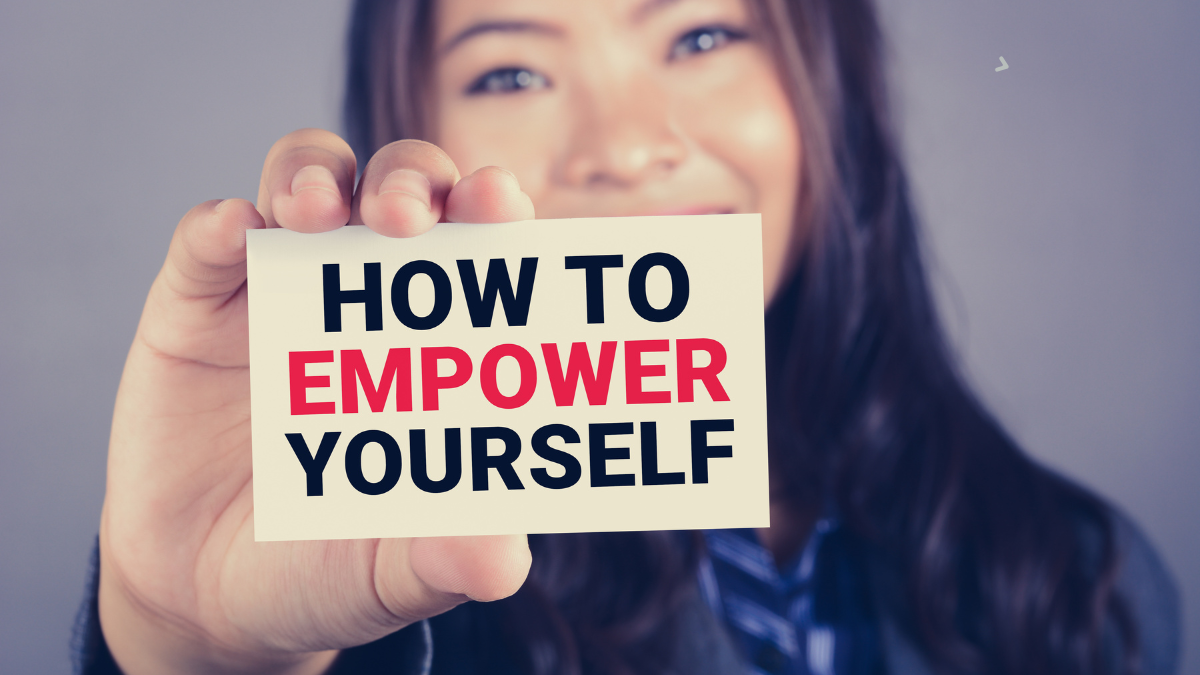Life can be overwhelming. Work. Family. Responsibilities. Challenges. Life gets tough. And sometimes, instead of taking care of ourselves, we treat ourselves with cruelty and contempt. We pick at our mistakes. We berate ourselves for our weaknesses. We expect more of ourselves than we would of anyone else.
Don’t get me wrong. There’s nothing wrong with holding yourself to high standards. But if there’s no kindness in your expectations, then it’s not healthy. You can still have a strong work ethic and be driven without constantly being critical and mean to yourself.
Self-compassion is how you treat yourself when you’re struggling, making mistakes, or feeling inadequate. It means practicing the same kindness, understanding, and patience with yourself that you would show to a loved one.
If you’re interested in learning how to be kinder to yourself, this post is for you. It will break down exactly what self-compassion is, the benefits of practicing it, and ways you can practice it every single day.

What Is Self-Compassion?
Self-compassion is treating yourself with care and understanding during times of suffering or failure. It means being kind to yourself when you make mistakes or when life gets difficult, instead of ignoring your pain or beating yourself up for it.
Imagine how you would treat a loved one who was having a hard time. You would encourage them, remind them they were not alone, listen to their problems, and tell them everything would be okay. That’s exactly how you should treat yourself when you’re struggling or feeling less than perfect.
Self-compassion means speaking to yourself the way you would speak to someone you care about deeply.
Why Self-Compassion Is Important
Practicing self-compassion has many benefits, including:
-
Decreased stress and anxiety
-
Increased resilience
-
Improved relationships with others
-
Enhanced motivation
Contrary to popular belief, being hard on yourself does not make you more successful. Studies show that we work harder and are more motivated in the long run when we are kind to ourselves, not mean.
Practicing self-compassion allows you to face challenges with a healthy mindset and more emotional strength. Instead of being your own worst enemy, you become your best ally.
How to Show Yourself Compassion in Daily Life
Practicing self-compassion can be as simple as changing the way you speak to yourself. Here are 12 ways you can be kinder to yourself on a daily basis.
1. Speak to Yourself Kindly
Your inner voice can be your best friend or your worst enemy. If you tend to talk to yourself using harsh words and self-criticism, it’s time to change it. Whenever you catch yourself judging yourself, pause and reframe your thoughts with more supportive language.
For example:
Self-criticism: “I’m such a failure!”
Kindness: “I’m learning. Everyone makes mistakes.”
The more you practice talking kindly to yourself, the more your self-talk will change, and the easier it will become to show yourself compassion.
2. Accept Your Flaws
Perfection doesn’t exist. Everyone makes mistakes, and that’s okay. Self-compassion means reminding yourself that it’s okay not to be perfect. Everyone has flaws. If you mess up, remind yourself that this doesn’t make you a bad person. It makes you human.
Self-compassion: “I’m not perfect, but that’s okay.”
Self-criticism: “I should be better than this.”
3. Practice Mindfulness
One of the greatest gifts you can give yourself is the ability to notice your thoughts and emotions without judgment. Mindfulness means observing your feelings and thoughts instead of letting them run away with you or pushing them away.
Mindfulness meditation is a great way to practice this, but it can also be as simple as taking five minutes to sit in silence, focusing on your breathing, and letting your thoughts come and go without reacting.
Allow yourself to feel your emotions, but don’t overidentify with them. Be mindful.
4. Forgive Yourself
Forgiving yourself for your mistakes and regrets is essential for practicing self-compassion. When you beat yourself up for things you said or did in the past, it only brings you down and prevents you from moving forward.
Instead of replaying what you said or did in your head, ask yourself, “What would I say to someone I love who made this mistake?” Then say those same words to yourself.
5. Set Boundaries
Being compassionate with yourself also means setting healthy boundaries. Saying no to things that drain your energy or push you too far outside your comfort zone is a kind thing to do for yourself.
Learning to respect your limits and protect your well-being is an act of self-compassion. Treat other people the way you want to be treated, and set boundaries for yourself.
6. Listen to Your Body
Self-compassion isn’t just emotional; it’s physical too. Treating yourself with care means giving your body the rest, movement, and nutrition it needs to be at its best. Listen to your body’s signals. Don’t ignore hunger, fatigue, or restlessness.
In many ways, being kind to yourself physically is the easiest. A little self-care is one of the simplest forms of self-compassion.
7. Acknowledge Your Success
Instead of focusing only on what you haven’t yet achieved, pause and celebrate your small wins. Did you finish a project, keep a promise to yourself, or respond to a difficult situation with kindness? Recognize it. It matters.
For every critical or mean thing you say to yourself, balance it by recognizing your successes.
8. Surround Yourself with Supportive People
If you want to be compassionate with yourself, surround yourself with people who make it easier, not harder, to do that. People who are constantly criticizing you will make it harder for you to show yourself the same kindness.
Fill your life with supportive, uplifting people who inspire you to be your best self.
9. Allow Yourself to Rest
Rest isn’t lazy. Rest is a form of self-care. When you give yourself permission to rest and take a break without feeling guilty, you are being compassionate with yourself. You don’t need to prove yourself by not resting.
Take care of yourself and give your mind and body permission to relax.
10. Practice Gratitude
Gratitude is a great way to practice self-compassion. When you focus on what’s going well, it’s easier to be kind to yourself and less likely that you will focus on your flaws. Each day, try to write down a few things you’re grateful for about yourself and your life.
Reminding yourself of your strengths and what you have will help you be more compassionate with yourself when you’re struggling or down.
11. Avoid Negative Comparisons
It’s easy to compare your progress to others, and that’s a problem. You don’t see the full story of someone’s life when you look at their social media. People tend to share their highlights, not their failures or the challenges they’re working to overcome.
Self-compassion means being patient and understanding with your own progress and knowing that you’re on your own unique journey.
12. Create a Self-Compassion Ritual
Create a daily practice to remind you to be kinder to yourself. This could be as simple as writing a few self-compassionate sentences in your journal before bed each night or repeating a few affirmations every morning or evening.
Consistency is key. Build a daily self-compassion practice to make sure you’re making time for it every day.
Common Misconceptions About Self-Compassion
Myth: Self-compassion makes you weak.
Truth: It makes you emotionally stronger and more resilient.
Myth: Self-compassion equals self-pity.
Truth: Compassion acknowledges your pain but motivates you to improve. Self-pity keeps you stuck.
Myth: Self-compassion lowers motivation.
Truth: Studies have found that self-compassion enhances motivation in the long run.
The Long-Term Impact of Self-Compassion
Practicing self-compassion is like a muscle. The more you work at it, the stronger it becomes, and the more self-compassionate you’ll be over time.
You’ll notice that you:
-
Recover from setbacks faster
-
Feel less burned out or exhausted
-
Develop a sense of peace and acceptance
-
Inspire others by example
Most of all, you’ll build a life where you are your own best friend, not your worst enemy.
Final Thoughts
Life will never be easy all the time. No one’s life is. There will always be challenges, mistakes, and difficult situations to work through.
But that doesn’t mean you have to be cruel to yourself in the process. You can work hard and hold yourself to high expectations, but there’s no need to be mean to yourself as well.
Self-compassion is about meeting yourself where you are with a loving and kind mindset, instead of cruelty and contempt.
Learning how to be kinder to yourself can change your life. Start by practicing a few of these ways to show yourself compassion. With practice, it will become easier until it becomes a habit.
Save the pin for later

- 9 Things Daughters Of Narcissistic Mothers Don’t Do - 02/03/2026
- Daughters of Narcissistic Mothers Healing Affirmations - 27/02/2026
- 5 Perfect Mother’s Day Gift Ideas (That She’ll Truly Love) - 27/02/2026
